The difference you made in 2018
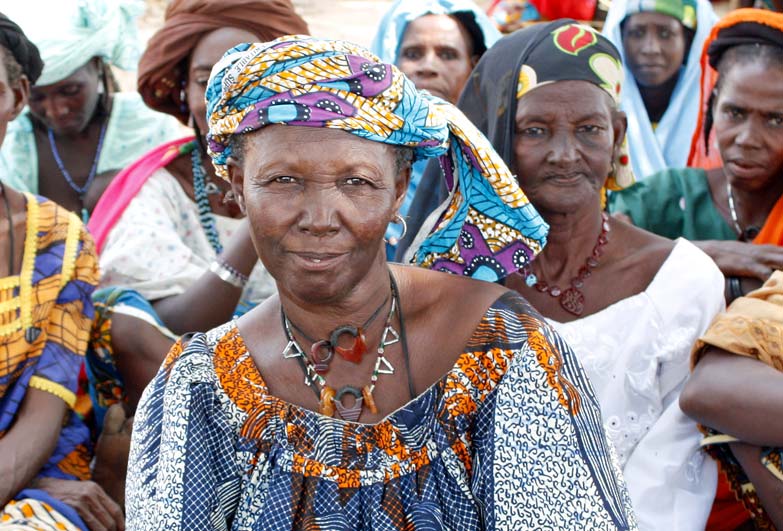
Fighting back against slavery
Throughout 2018 we faced significant challenges to human rights, from the callous treatment of those seeking asylum in Europe and the US, to a rise in populism across the world.
But in the midst of them there has been an enormous fight back. As slavery continues to hit the headlines, our growing anti-slavery movement is having an impact. In the last year alone our members, supporters and donors have helped strengthen over 17 anti-slavery movements across 19 projects in 14 countries.* Together we have changed laws and policies to stop slavery in its tracks.
I hope you will continue to be a part of this movement, fighting now, for freedom for all.
Jasmine O’Connor, CEO
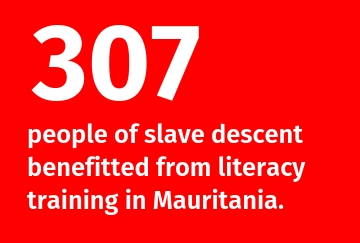
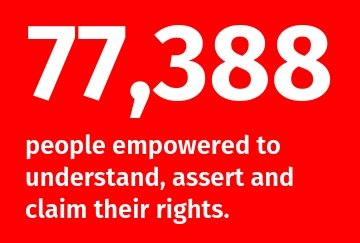
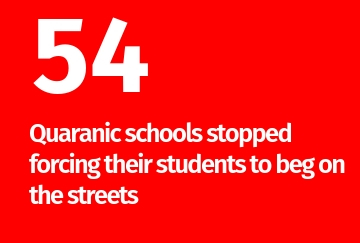
UK: cuts to victim support reversed
 The UK High Court reversed the cuts to support for asylum seeking victims of trafficking. Anti-Slavery was the first to identify the cuts and closely worked with lawyers in bringing the case to the Court. The cuts from £65 to £37.75 per week quietly implemented by the Home Office in March 2018 made it difficult for victims to afford the most basic needs such as a healthy diet or travel to counselling.
The UK High Court reversed the cuts to support for asylum seeking victims of trafficking. Anti-Slavery was the first to identify the cuts and closely worked with lawyers in bringing the case to the Court. The cuts from £65 to £37.75 per week quietly implemented by the Home Office in March 2018 made it difficult for victims to afford the most basic needs such as a healthy diet or travel to counselling.
Nepal: women taking on the traffickers
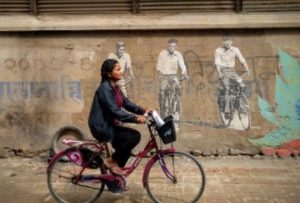 45 young women who are survivors of exploitation in Nepal have been trained as paralegals and benefitted from placements in police stations, building up their skills and confidence and helping the police to improve responses to other trafficking cases. All women have reported an immense positive impact of this placement on their self-confidence.
45 young women who are survivors of exploitation in Nepal have been trained as paralegals and benefitted from placements in police stations, building up their skills and confidence and helping the police to improve responses to other trafficking cases. All women have reported an immense positive impact of this placement on their self-confidence.
We also reached out to areas most affected by the 2015 earthquake with special awareness raising programmes designed to empower whole communities, and especially girls, to become resilient to traffickers trying to take advantage of them.
Binsa*, Nepal
“When I was 8 or 9, my parents sent me to work in someone else’s house. I got up at 5am every day and worked all day, I was treated like a dog. I was just given leftovers for food.”
Binsa ran away and is now being trained as a paralegal by Anti-Slavery partners and helps others who’ve been trafficked. “It has given me courage. I will never again be the Binsa back then who couldn’t express herself.” (*name and image changed).
Niger: schools as beacons of freedom
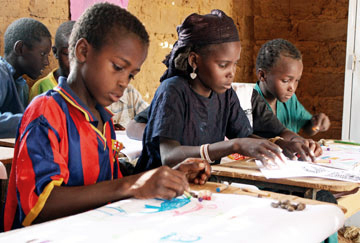 Our schools established for people who’ve escaped traditional slavery in Niger went from strength to strength last year. They obtained excellent pass rates of over 80% on average at the end of the 2017-18 school year, far above the national average of 53%. 132 students from our schools, including 49 girls, have already been admitted to secondary schools since the project began, an absolute first for the communities that have never had access to any formal education in the past.
Our schools established for people who’ve escaped traditional slavery in Niger went from strength to strength last year. They obtained excellent pass rates of over 80% on average at the end of the 2017-18 school year, far above the national average of 53%. 132 students from our schools, including 49 girls, have already been admitted to secondary schools since the project began, an absolute first for the communities that have never had access to any formal education in the past.
Adamou*, 16, Niger
“I am the fi rst one in the family to go to secondary school and this makes my parents very proud. Life in my home village has changed a lot since the schools were built [by Anti-Slavery for people escaping hereditary slavery]. There are no slaves in my village any more. My dream is to become the President of Niger. I would build schools and wells in every village and release people who are still in slavery.” (*name changed).
Mauritania: from slavery survivors to entrepreneurs
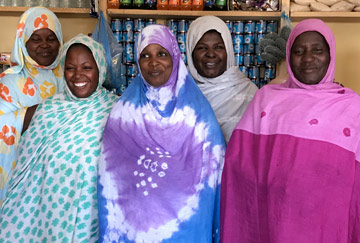 For a person born into slavery it is incredibly challenging to leave their master and embrace freedom. It is extraordinary therefore when those newly freed start to run their own businesses.
For a person born into slavery it is incredibly challenging to leave their master and embrace freedom. It is extraordinary therefore when those newly freed start to run their own businesses.
But 180 women in Mauritania have thrived after an Anti-Slavery project gave them training, equipment and funds to run local co-operatives, which they developed into food shops and a clothing store. All shops made a profit last year and some groups have developed strategies to boost their sales like stocking products their competitors don’t have, such as gas bottles, ice and couscous.
Support women who escaped slavery in Mauritania in building their lives in freedom. Donate today.
Mauritania: from slavery to justice
Two brothers who were born into slavery in Mauritania, won substantial compensation for their ordeal after a seven-year legal fight led by Anti- Slavery and partners. Their case was the first in the history of the country to end with the prosecution of their former masters for slavery crimes, back in 2011. Last year also saw the third and fourth convictions for slavery in Mauritania’s history, which – with the government hostile to antislavery activists – provides a glimmer of hope for those seeking their freedom.
India: trafficked labourers rescued from Nepal
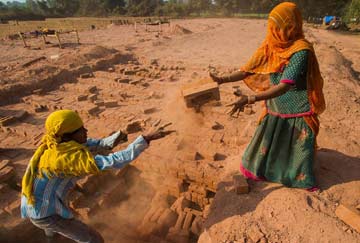 A complex rescue mission, led by Anti-Slavery and its partners, liberated a group of 47 men, women and children, including an 11-day-old baby, from a brick factory in Nepal and brought them back home to India.
A complex rescue mission, led by Anti-Slavery and its partners, liberated a group of 47 men, women and children, including an 11-day-old baby, from a brick factory in Nepal and brought them back home to India.
The families of workers were initially lured on a promise of decent jobs in northern India, but the entire group was then sold for 250,000 Indian rupees (around £2750) to neighbouring Nepal. The conditions were compared to labour camps, with workers being beaten, intimidated and left without pay.
India: freedom after 25 years
In 1992, Mohan Lal and his wife Bhagavati, travelled to work at a brick factory in Punjab with dreams of a better life. Instead, they became trapped in debt bondage for 25 years. They had three children and the whole family was forced to work there.
Mohan and Bhagavati managed to educate their children, which is very unusual for brick factory workers. When the factory owner stopped their youngest son, Hardeep, from taking an exam, he called the Anti-Slavery hotline for help and managed to free the family.
Globally: working with business to source responsibly
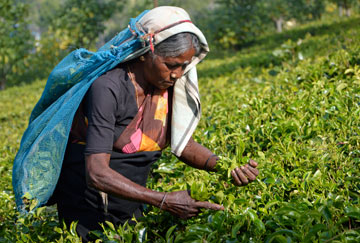 Anti-Slavery is encouraged by the increasing seriousness with which businesses take the risks of slavery tainting their supply chains. The online clothing giant ASOS, clothing brand Whistles and luxury goods retailer the White Company are amongst the businesses that we worked closely with last year. We help businesses to reduce the risk of slavery in their operations, which benefits vulnerable people who need safe employment and consumers who wish for their products to be made responsibly.
Anti-Slavery is encouraged by the increasing seriousness with which businesses take the risks of slavery tainting their supply chains. The online clothing giant ASOS, clothing brand Whistles and luxury goods retailer the White Company are amongst the businesses that we worked closely with last year. We help businesses to reduce the risk of slavery in their operations, which benefits vulnerable people who need safe employment and consumers who wish for their products to be made responsibly.
Uzbekistan commits to end its Cotton Crimes
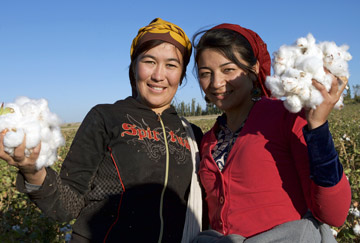 In a major breakthrough, one the world’s largest cotton exporters Uzbekistan, which forces its citizens out of their regular jobs into the fields to pick cotton, has publicly committed to ending this practice. The Uzbek Government even invited Anti-Slavery and our partners to discuss ways to end the forced labour system. The Government is yet to fully put their commitment into practice and we continue to campaign for more progress.
In a major breakthrough, one the world’s largest cotton exporters Uzbekistan, which forces its citizens out of their regular jobs into the fields to pick cotton, has publicly committed to ending this practice. The Uzbek Government even invited Anti-Slavery and our partners to discuss ways to end the forced labour system. The Government is yet to fully put their commitment into practice and we continue to campaign for more progress.
Turkmenistan: forced-labour cotton banned from the US
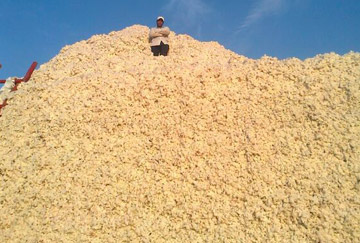 The United States banned the import of products produced with Turkmen cotton, a result of campaigning by the coalition Anti-Slavery is working with to end forced labour in that country. Turkmenistan, one of the world’s most oppressive regimes that forces its own citizens to harvest its cotton, is under increasing pressure to stop the practice, with over 40 global brands joining our pledge to stop sourcing Turkmen cotton until abuses end.
The United States banned the import of products produced with Turkmen cotton, a result of campaigning by the coalition Anti-Slavery is working with to end forced labour in that country. Turkmenistan, one of the world’s most oppressive regimes that forces its own citizens to harvest its cotton, is under increasing pressure to stop the practice, with over 40 global brands joining our pledge to stop sourcing Turkmen cotton until abuses end.
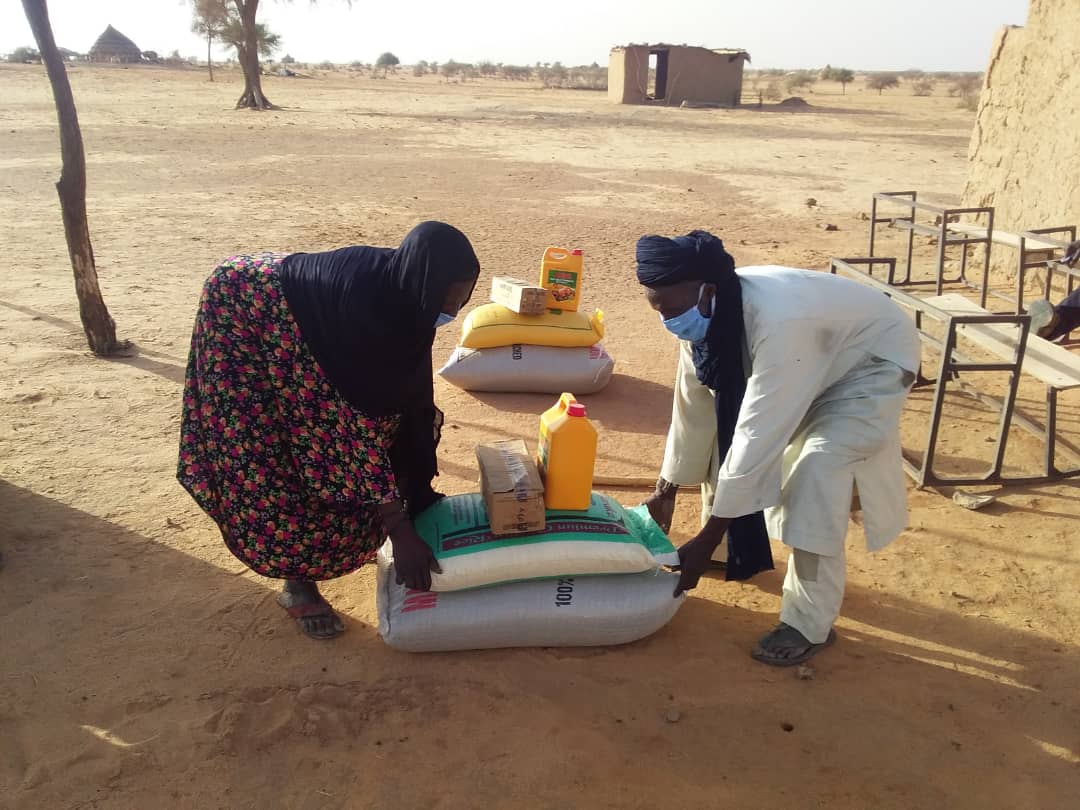
Help us achieve even more in 2019
Join us to make a difference for more people in slavery this year
*All numbers in this report are for financial year 2017-18 unless stated otherwise.
 Throughout 2018 we faced significant challenges to human rights, from the callous treatment of those seeking asylum in Europe and the US, to a rise in populism across the world.
Throughout 2018 we faced significant challenges to human rights, from the callous treatment of those seeking asylum in Europe and the US, to a rise in populism across the world.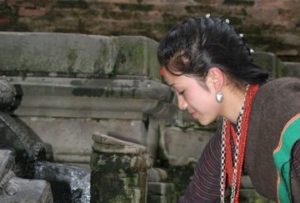 “When I was 8 or 9, my parents sent me to work in someone else’s house. I got up at 5am every day and worked all day, I was treated like a dog. I was just given leftovers for food.”
“When I was 8 or 9, my parents sent me to work in someone else’s house. I got up at 5am every day and worked all day, I was treated like a dog. I was just given leftovers for food.”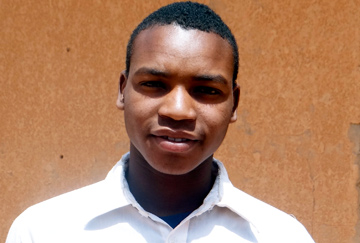 “I am the fi rst one in the family to go to secondary school and this makes my parents very proud. Life in my home village has changed a lot since the schools were built [by Anti-Slavery for people escaping hereditary slavery]. There are no slaves in my village any more. My dream is to become the President of Niger. I would build schools and wells in every village and release people who are still in slavery.” (*name changed).
“I am the fi rst one in the family to go to secondary school and this makes my parents very proud. Life in my home village has changed a lot since the schools were built [by Anti-Slavery for people escaping hereditary slavery]. There are no slaves in my village any more. My dream is to become the President of Niger. I would build schools and wells in every village and release people who are still in slavery.” (*name changed).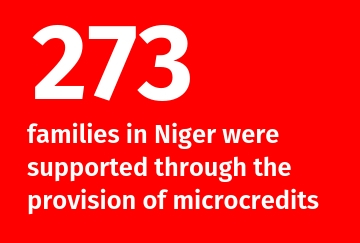
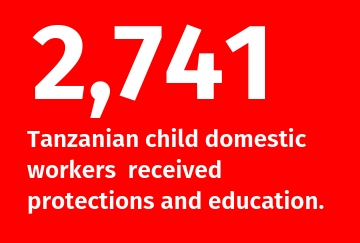
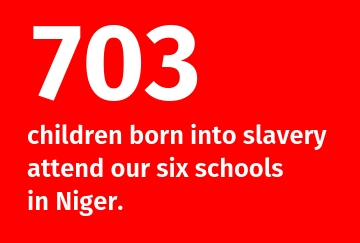
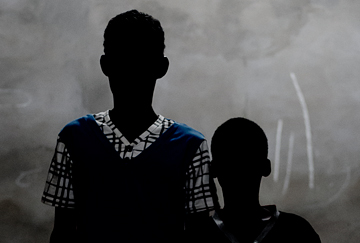 Two brothers who were born into slavery in Mauritania, won substantial compensation for their ordeal after a seven-year legal fight led by Anti- Slavery and partners. Their case was the first in the history of the country to end with the prosecution of their former masters for slavery crimes, back in 2011. Last year also saw the third and fourth convictions for slavery in Mauritania’s history, which – with the government hostile to antislavery activists – provides a glimmer of hope for those seeking their freedom.
Two brothers who were born into slavery in Mauritania, won substantial compensation for their ordeal after a seven-year legal fight led by Anti- Slavery and partners. Their case was the first in the history of the country to end with the prosecution of their former masters for slavery crimes, back in 2011. Last year also saw the third and fourth convictions for slavery in Mauritania’s history, which – with the government hostile to antislavery activists – provides a glimmer of hope for those seeking their freedom.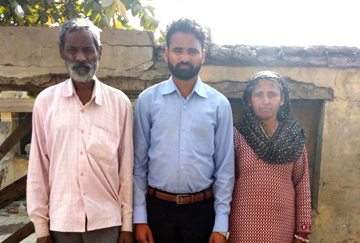 In 1992, Mohan Lal and his wife Bhagavati, travelled to work at a brick factory in Punjab with dreams of a better life. Instead, they became trapped in debt bondage for 25 years. They had three children and the whole family was forced to work there.
In 1992, Mohan Lal and his wife Bhagavati, travelled to work at a brick factory in Punjab with dreams of a better life. Instead, they became trapped in debt bondage for 25 years. They had three children and the whole family was forced to work there.